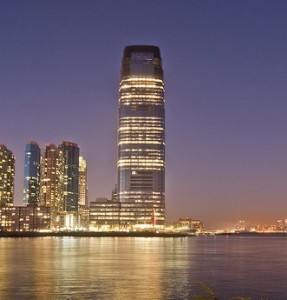Goldman Sachs Stumbles: The End of the "Vampire Squid"?
 Photo: laverrue
Photo: laverrueA few years ago, a friend of mine who used to work on Wall Street told me that the only stock anyone needed to own was Goldman Sachs. He was of course half-joking (I sure hope this wasn’t the advice he was giving clients), but his point was clear: whatever price increases were happening out in the world, whatever profits were there for the taking, no matter the market, you could be fairly certain that Goldman was on the scene.
The image of Goldman Sachs as some sort of omnivorous, ever-present beast was perpetuated by Matt Taibbi in his 2010 Rolling Stone article, in which he dubbed the firm “a great vampire squid wrapped around the face of humanity, relentlessly jamming its blood funnel into anything that smells like money.” And that was just the second sentence.
It would appear that the squid has since had a few of its tentacles lopped off, or at least been shrunken down to size. For only the second time since it went public in 1999, Goldman Sachs has posted a quarterly loss. The result was a lot worse than expected: Goldman lost $428 million, or 84 cents a share; the market was anticipating something in the ballpark of just 11 cents a share.
The main culprit looks to be Goldman’s lower trading revenue, which at $4.06 billion was down 13 percent from a year ago. Though it was up 16 percent from the second quarter, that’s more a reflection of how poor Goldman’s second quarter trading results were than it is a silver lining on the present situation. Earlier this year, Goldman got uncharacteristically cautious (overly so, many would argue) and cut back on its risk. This is in stark contrast to the brassy, damn-the-torpedoes Goldman Sachs that we’ve come to know. Back in 2009 and 2010, Goldman cranked up its risk-taking and made huge profits, this at a time when most banks were still muddling along, shell-shocked in the aftermath of the financial crisis. Over the last few years, Goldman was Wall Street’s unquestioned alpha male.
So how come it suddenly looks like the cautious, careful one? The answer is that Goldman seems to have lost its trading mojo. Trading used to be Goldman’s bailiwick, the thing it did better and more aggressively than any other bank. Now Goldman looks pretty average. Last month it shut down its Global Alpha Fund. Once the firm’s biggest quantitative hedge fund, Alpha had lost 12 percent through August. Not only has Goldman gotten risk-averse, it has just lost its spot as the top trading firm on the New York Stock Exchange’s program-trading list.
But maybe this is an example of Goldman again having more foresight than the rest, and hunkering down in the face of the looming Volcker Rule — that piece of the Dodd-Frank bill that banks like Goldman fear because of how it tries to limit their trading activity. Following months of lobbying that tried to defang it, the Volcker Rule appears to have emerged relatively intact in the form of a 298-page document released by the FDIC last week.

Comments